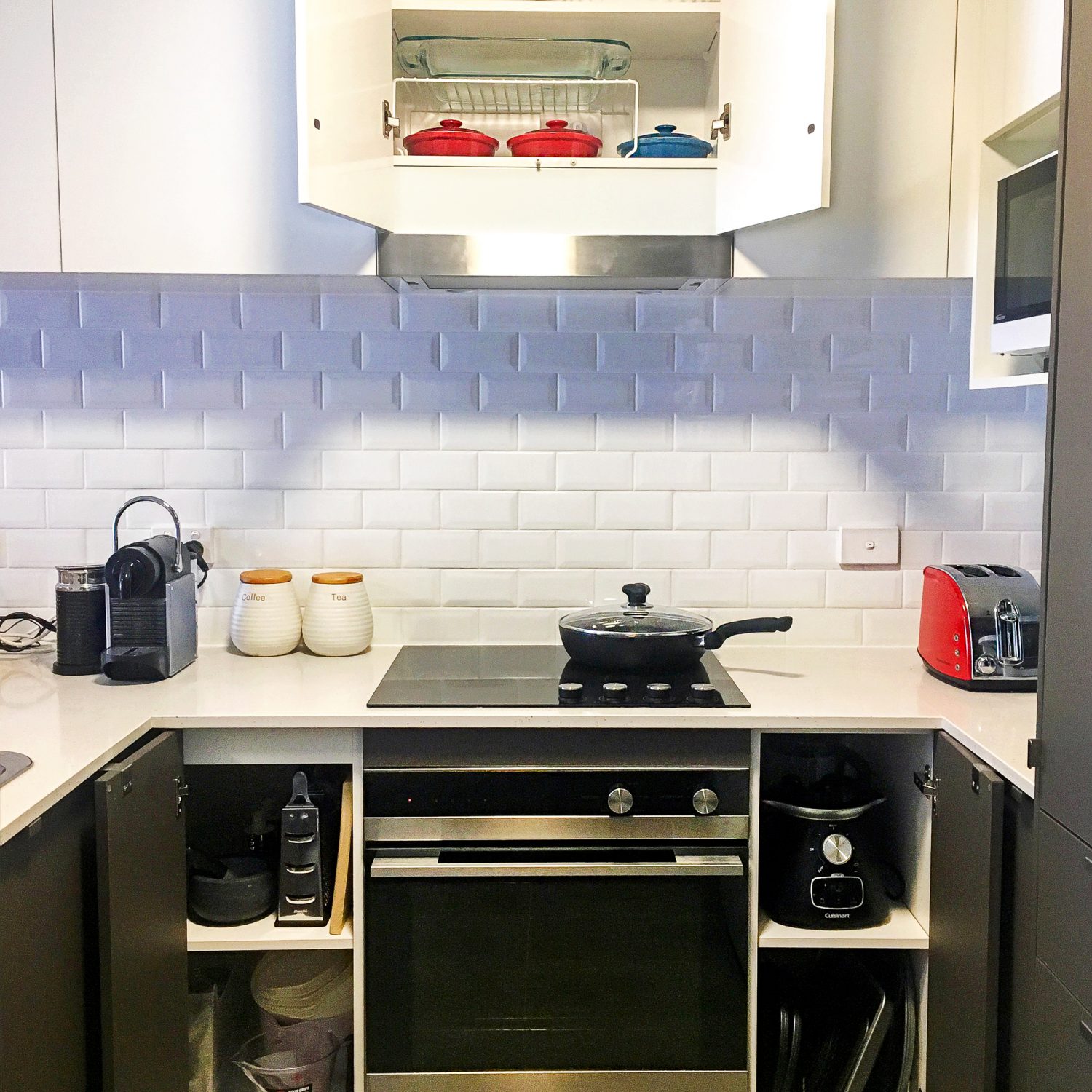The challenge
A supportive father, John* contacted me as he was concerned about his daughter Lisa’s anxiety over her home. Lisa* is a very independent young lady in her 20s has epilepsy. The severe seizures that she experiences as a symptom of her epilepsy often take her a few days to recover from. During her recovery time, Lisa is unable to attend work and finds it challenging to concentrate and maintain focus, which leads to difficultly in maintaining her home. Due to the overwhelm Lisa was feeling with her home, she would spend most of her time at home watching TV as a means of avoiding and escaping the anxiety that her home was creating.
The solution
Lisa and I worked together to organise all the main living spaces her 1-bedroom apartment (kitchen, living area, bedroom and laundry). With Lisa’s daily usage habits in mind, we organised each storage space so that on Lisa’s more challenging days it would be quicker and easier for her to complete everyday tasks and would take less time for her to do a thorough clean when she regained her energy. To support the Lisa to maintain her home for the longer term, I helped Lisa to develop a very structured routine and schedule for her week. At Lisa’s request, the schedule was highly detailed and included an hour-by-hour timetable of her entire week, including the length and times she aimed to spend on household cleaning and home maintenance tasks, as well as her routine for personal grooming and dressing, meal preparation and eating, work commute times and scheduled time for her to relax, play and socialise. Lisa chose to place a print out of the timetable on her fridge.
The results
The highly structured timetable has enabled Lisa to focus and the achieve the things that she needed to do each day with without getting as distracted by watching TV. On most days, Lisa has been able to maintain her home to the high standard that she is happy with and on has found it much easier to tidy her home even after a few days of recovery. The extra detail and timing guide of how long she should expect to spend on each task is serving as a strong reminder of the actions and tasks that she needs to complete daily to manage her life in a way that she desires.
Tips
- Routines charts or checklists can help you to establish long lasting and positive habits.
- If you are easily distracted, a structured timetable for daily routines may prove useful to keep you focused.
- Writing down the top 5 things you need to do each day to keep your home tidy and attaching to your fridge or a central noticeboard, can be a big help especially when you are mentally fatigued.
- Store the items in your home, as close as possible to where you will be using them.
* Permission has been granted by the client to share their story. Names have been changed to respect their privacy. The Organising Bee will never share photos or client information without permission from the client.

